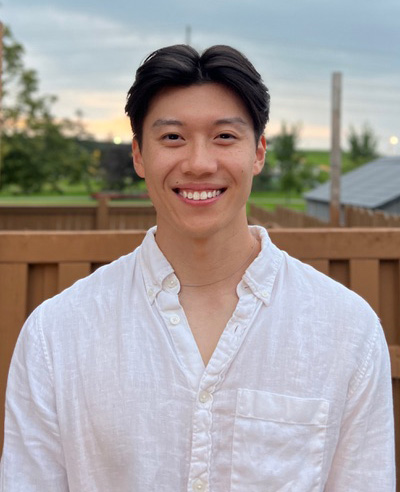1. Welcome back to the TBCRU, can you remind our readers who you are and tell us a little about yourself?
My name is Vy Ngo, and I am a Ph.D. candidate in the Department of Pathology and Laboratory Medicine at Western University. I work under Dr. Martin Duennwald, and this is my third year in the Translational Breast Cancer Research Unit (TBCRU) program.
2. As a senior researcher, why is the TBCRU Studentship Award important to you, how does it allow you to advance your research?
This award has helped fund important resources for my work and has given me new opportunities to learn, network, and be a part of London’s breast cancer research community. It has allowed me to produce some exciting research results!
3. In a few lines, can you remind us what you are doing and what problems you hope to solve with your research?
I am investigating chemotherapy resistance in HER2+ breast cancer. HER2+ is a type of breast cancer that produces a protein that promotes the growth of the tumour. I am designing a unique approach to enhance breast cancer therapies that target this protein. Through this research, I hope to improve outcomes for patients with HER2+ breast cancer.
4. Since we last spoke, have there been any changes or any advancement in your research?
Previously, I found that HER2+ breast cancer cells produce high levels of a protein called Hsp90, associated with reduced patient survival. I have now discovered a strong link between Hsp90 and another protein called GPX, particularly in HER2+ breast cancer cells. This may explain why HER2+ breast cancers don’t respond to cancer therapy and end up spreading. Targeting this cellular mechanism could improve future patient treatment outcomes.
5. Have you had an opportunity to present your research to your peer researchers? Was it at a national or international meeting or in some other way?
Due to the COVID-19 pandemic, I have not had the opportunity to present my research this past year. However, in previous years I presented part of this work at the Pathology and Laboratory Medicine Research Day in March 2019. I was awarded the Dr. M. Daria Haust Award for the Best Basic Science Presentation. Other conference presentations include the Canadian Society for Molecular Biosciences (CSMB) ’s Model Systems in Cancer Research, and the Proteostasis Researchers in Canada, Eh (PRinCE) meeting.
6. Did that presentation setting help you share your breast cancer research with the broader scientific community?
Presenting my work has allowed me to share my findings with three different scientific communities. I obtained feedback on my work from researchers and experts in various fields, which has been enormously beneficial.
7. Did any of the feedback or conversations that came about from presenting your research, help you and your research in any way?
I received a lot of great feedback and suggestions from researchers, some of which I have already incorporated into my research. I also had the opportunity to meet some new breast cancer researchers from whom I gained valuable knowledge and insight from.
8. Now that you have had some more time with your research, how do you think your research will be applied in a real-world situation?
A significant portion of HER2+ breast cancer patients develop resistance to therapy, which is a challenge. If my research project is successful, our approach could potentially be used to enhance the effectiveness of existing treatments for HER2+ breast cancer patients.
9. Tell us about your involvement in the Breast Cancer Society of Canada fundraising events (Dress for the Cause, Mother’s Day Walk)?
Since becoming a TBCRU trainee in 2018, I have had the privilege to volunteer at numerous events, including Dress for the Cause and the annual Mother’s Day Walk. This year for Breast Cancer Awareness Month, the TBCRU trainees hosted fundraising events over a virtual platform. A silent auction and games night were hosted to raise funds and awareness for breast cancer research. These events also allowed us to network with each other despite the ongoing pandemic.
10. What about your participation in other Breast Cancer Society of Canada donor events or tours, how has that impacted your perspective on breast cancer research?
Over the years, participating in BCSC events has led me to appreciate those involved’ efforts and accomplishments. I admire the sense of community and collaboration between breast cancer researchers, BCSC members, community members and partners, all working together towards a shared goal. This reinforces the importance of what we do and motivates me to keep pushing forward in my breast cancer research.
11. What are you currently reading, watching or listening to outside of the lab?
I am currently watching a detective mystery TV series called “The Millionaire Detective Balance: Unlimited.”




